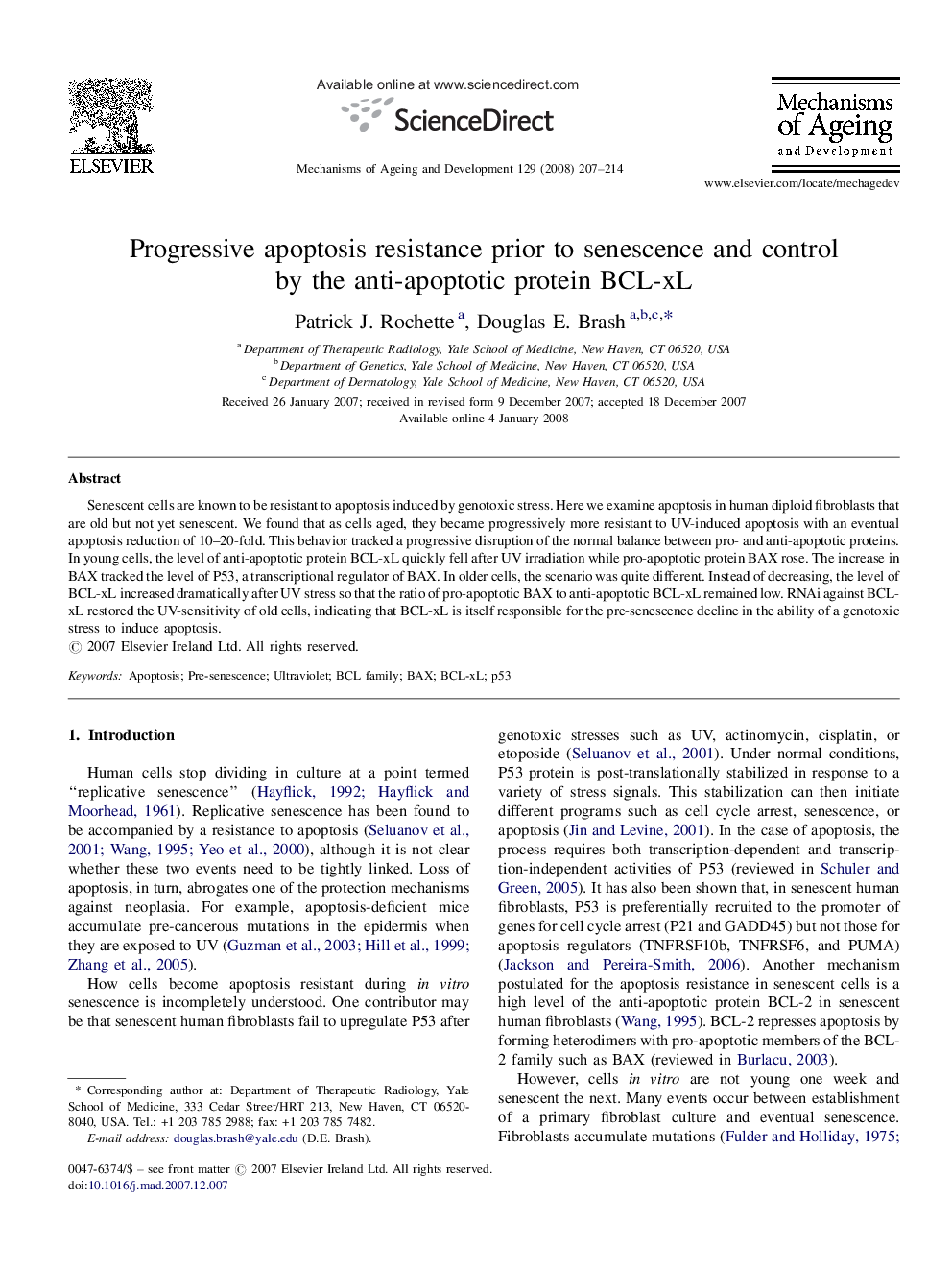| Article ID | Journal | Published Year | Pages | File Type |
|---|---|---|---|---|
| 1919526 | Mechanisms of Ageing and Development | 2008 | 8 Pages |
Senescent cells are known to be resistant to apoptosis induced by genotoxic stress. Here we examine apoptosis in human diploid fibroblasts that are old but not yet senescent. We found that as cells aged, they became progressively more resistant to UV-induced apoptosis with an eventual apoptosis reduction of 10–20-fold. This behavior tracked a progressive disruption of the normal balance between pro- and anti-apoptotic proteins. In young cells, the level of anti-apoptotic protein BCL-xL quickly fell after UV irradiation while pro-apoptotic protein BAX rose. The increase in BAX tracked the level of P53, a transcriptional regulator of BAX. In older cells, the scenario was quite different. Instead of decreasing, the level of BCL-xL increased dramatically after UV stress so that the ratio of pro-apoptotic BAX to anti-apoptotic BCL-xL remained low. RNAi against BCL-xL restored the UV-sensitivity of old cells, indicating that BCL-xL is itself responsible for the pre-senescence decline in the ability of a genotoxic stress to induce apoptosis.
